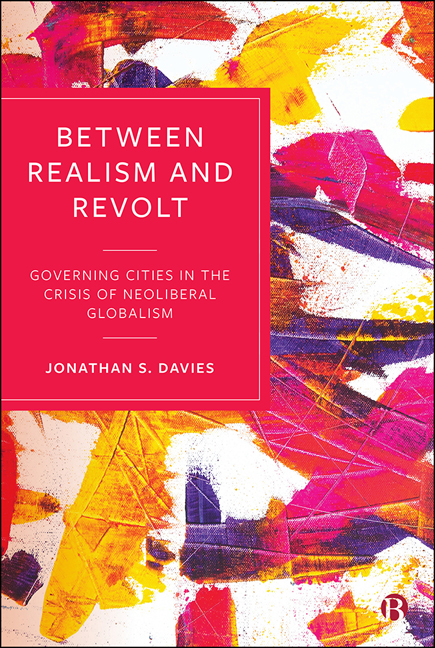Book contents
- Frontmatter
- Dedication
- Contents
- List of Tables
- Contributing Investigators
- Acknowledgements
- Preface
- Introduction
- 1 Studying Urban Political (Dis)Orders
- 2 Dynamics of Crisis, Neoliberalisation and Austerity
- 3 Austerity and State Rescaling
- 4 Consolidating Neoliberal Austerity Regimes
- 5 Regime Divergence and the Limits of Austere Neoliberalism
- 6 Resisting Austerity: Resonant Solidarities and Small Wins
- 7 The ‘Activity of Ruling Groups’: Containment, De-mobilisation and Fragmentation
- 8 Reading the Conjuncture: (Dis)Ordering Dynamics in the Crises of Neoliberal Globalism
- Afterword: Into the Pandemic
- Notes
- References
- Index
4 - Consolidating Neoliberal Austerity Regimes
Published online by Cambridge University Press: 05 January 2022
- Frontmatter
- Dedication
- Contents
- List of Tables
- Contributing Investigators
- Acknowledgements
- Preface
- Introduction
- 1 Studying Urban Political (Dis)Orders
- 2 Dynamics of Crisis, Neoliberalisation and Austerity
- 3 Austerity and State Rescaling
- 4 Consolidating Neoliberal Austerity Regimes
- 5 Regime Divergence and the Limits of Austere Neoliberalism
- 6 Resisting Austerity: Resonant Solidarities and Small Wins
- 7 The ‘Activity of Ruling Groups’: Containment, De-mobilisation and Fragmentation
- 8 Reading the Conjuncture: (Dis)Ordering Dynamics in the Crises of Neoliberal Globalism
- Afterword: Into the Pandemic
- Notes
- References
- Index
Summary
Introduction
Chapter 3 explained how various forms of state rescaling squeezed the formal political capacity for municipalities to contest austere neoliberalism. To the extent they are implemented successfully, these measures contribute to consolidating states and sub-national regimes in an integral sense: they make it easier to ensure that elements in the local state ensemble pull in broadly the same direction. Chapters 4 and 5 turn from state rescaling to coalitions among state, market and civil society actors, and the urban regime configurations that have arisen, or been challenged, in the post-crisis period. For this reason, the chapters proceed on a city-by-city basis rather than thematically.
One avenue in this account is the question highlighted in the introductory chapter of what happened to participatory governance, and what this in turn reveals about the trajectory towards more-or-less inclusionary and exclusionary modes of governing in and against austere neoliberalism, marshalling what co-optive and pre-emptive powers and incurring which liabilities. In exploring this issue, ‘social partnership’ is employed as a portmanteau term to encompass both the corporatist and post-corporatist modes of collaborative governance privileging, respectively, trade unions and ‘civil society’. Both kinds played a significant role in austerity governance and resistance (Gaynor, 2011).
The research revealed significant variations and transitions in the powers and liabilities accruing to urban regimes, which attest to the importance of reading austerity governance through urban histories and traditions. This chapter explores the four cities in which regime consolidation was occurring around the intensification of austere neoliberalism, Athens, Baltimore, Dublin and Leicester. Chapter 5 discusses four cities deviating from this pattern, Barcelona, Greater Dandenong, Montreal and Nantes. Chapters 4 and 5 work with the conception of the ‘local state’ explained in Chapter 1, encompassing all governmental and quasi-governmental agencies situated within the city/metropolis and having the city/metropolis as their main concern (Magnusson, 1985), while disclosing the role of civil society fractions in constructing and contesting urban political (dis)orders. Following Jessop (1997: 64), they inquire into the operationalisation of austerity governance through strategically selective combinations of political society and civil society, collaborating around ‘congruent’ (aligned rather than necessarily identical) agendas (Stone, 2004: 9).
- Type
- Chapter
- Information
- Between Realism and RevoltGoverning Cities in the Crisis of Neoliberal Globalism, pp. 91 - 112Publisher: Bristol University PressPrint publication year: 2021

